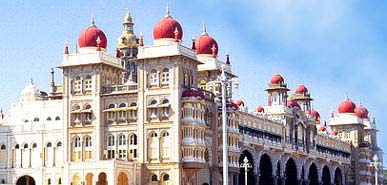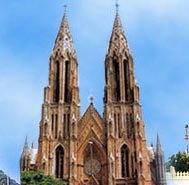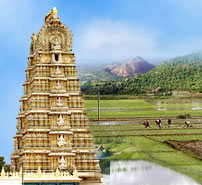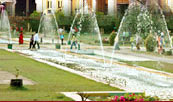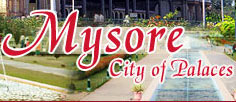Mysore was the capital of the erstwhile Mysore State.
During the reign of the Wodeyars, a person visiting the Durbar of the
King had to wear the traditional Durbar dress, which consisted of white
trousers, black long-coat and a turban. The only thing that has survived
and continues to be identified with Mysore is the turban. During the
reign of the Wodeyars wearing the turban with or without the golden lace
around was more or less necessary. The turban was a status symbol. A
person's social status and position in the hierarchy of status was
judged depending on the type of turban he wore.
Today though the traditional clothing like saree and dhothi is still
used western clothing has become common. Especially among the younger
generation western clothes have become more popular as they are more
convenient and easy to maintain. Traditional attire is used only of
special occasions like festivals, weddings etc. Young men prefer wearing
western trousers to the traditional dhoti though they may use it within
the confines of their homes. Young girls too prefer to wear the
salwar-khameez instead of the traditional langa (long skirt) and dhavani
(half saree). However the older generation continues to wear traditional
clothing namely the saree and dhoti. Mysore is famous for its silks.
Silk sarees continue to be a favourite among women of all generations.
The cost of a Mysore silk saree can vary from a few hundreds to a few
thousands.
Jewellery
Both men and women use ornaments, though women wear more gold
jewellery. Married men usually wear a gold ring or a simple gold chain
around their neck. Most women wear a nose-ring (moogu-bottu), earrings,
bangles and rings. Nearly all the married Hindu women wear the Mangala
Sutra, which consists of a Tali made of gold strung on a karimani sara
(a chain of black beads).
